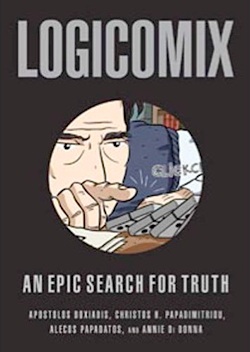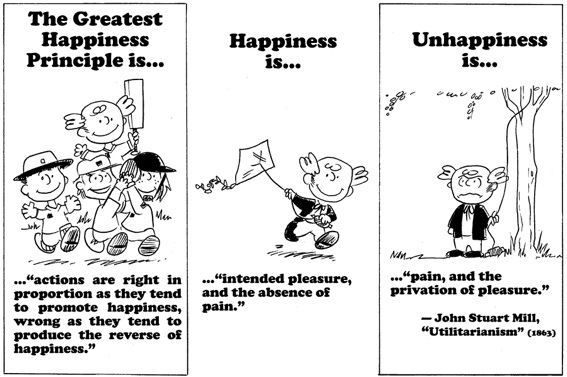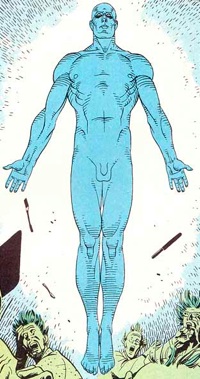Review: ‘Logicomix’, the Sorrows of Young Bertie, and the Great Quest
 Logicomix: An Epic Search for Truth
Logicomix: An Epic Search for Truth
by Apostolos Doxiadis and Christos Papadimitriou
Bloomsbury, September 2009, $22.95
Despite the modern framing at the end of this book arguing about whether or not this was a tragedy or a happy ending by bringing computers into the whole thing to support the side of happy, which puts a pimple onto something that is quite near-perfection otherwise, I will say that this is, in the imperfect vernacular, freakin’ awesome.
Being an Aristotelian and Thomist (Thomas Aquinas, 13th C.), mainly an Ethicist and Metaphysician, though I am acquainted with modern philosophies, they are not my favourite dance floor. I am neither adept at nor a fan of analytical philosophy – where they turn premises and sentences into symbols like mathematical equations. So I am absolutely gobsmacked that three Greek guys and one Italian-French chick got a hold of Bertrand Russell (19th-20th C. Logician, Mathematician), and not only made this titled noble Welshman from Cambridge comprehensible, but a sympathetic human character.
How did these wacky geniuses – Apostolos Doxiadis, Christos H. Papadimitriou, Alecos Papadatos, and Annie DiDonna – manage this great feat in all their fabulous geekitude? Very simply. They went straight to the heart of what makes Philosophy philosophical. It is the human quest. Every Philosopher is on it and always has been for nearly 3000 years.
Philosophers are, as a general lot, idealists. They are insane enough to dare to view the best and then to try to find a way to get there, through the Labyrinth, past the Minotaur, and give us mere mortals a map by which to follow along (maps being symbols of reality). The story is framed by our authors as they try to write this book and get it published and, just like their philosophical hero, they got turned down in their initial efforts, but persevered ‘til you have what is now before you.
The artwork is sweet, gentle, old-fashioned, nostalgic, very well-suited to this story starting in Victorian times and running through both World Wars, in Britain and across Germany, Austria, and Belgium. It’s approachable and easy on the eyes, but never talks down to the reader or the material – this is not Russell for Dummies. This is Russell for honest seekers who really want to understand him and his related colleagues but just aren’t wired for 360+ pages of symbols to indisputably prove that 1+1 = 2.







 Editor’s note: With the imminent release of Watchmen, we thought we’d try and get a different perspective. So we asked Alexandra Honigsberg, a professional ethicist and genre author, to read the book for the first time and delve into the ethos of the world created by Alan Moore and Dave Gibbons.
Editor’s note: With the imminent release of Watchmen, we thought we’d try and get a different perspective. So we asked Alexandra Honigsberg, a professional ethicist and genre author, to read the book for the first time and delve into the ethos of the world created by Alan Moore and Dave Gibbons.








